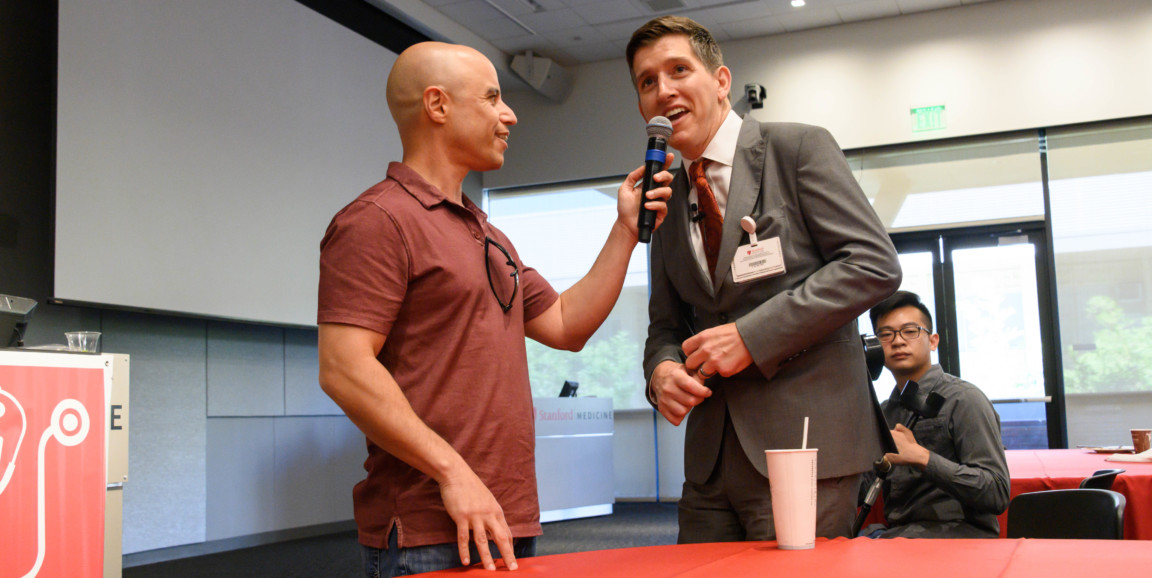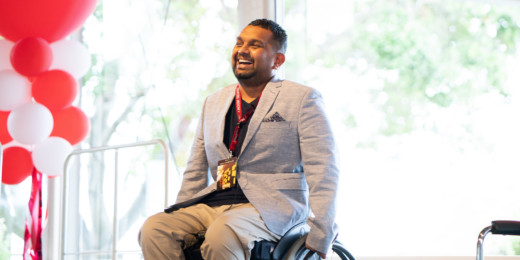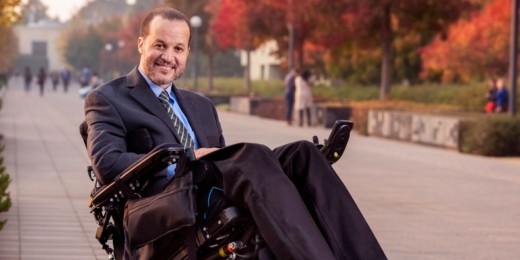You could say Peter Poullos, MD, was living a charmed life until January, 2003.
At the time, he was a gastroenterology fellow at the University of California, San Francisco. On a break from patient rounds and after performing an intricate medical procedure overnight, Poullos, a cycling enthusiast, decided to take a quick bike ride before returning to the hospital.
While riding in San Francisco's Aquatic Park, he tumbled down a flight of stairs, over his handlebars and landed face-first on the ground. He immediately knew he had a spinal cord injury. "I prayed it would pass, like a stinger, just a little ding... but it didn't," Poullos told me recently as we recorded a 1:2:1 podcast.
In a 2008 San Francisco Chronicle column, he wrote about what happened after the accident:
At San Francisco General, the trauma team, my own colleagues, administered life-saving dopamine and rushed me to the ICU. I spent five days there, barely able to breathe, staring at my motionless limbs, powerless to will them to move.
From San Francisco General he transferred to Santa Clara Valley Medical Center, where he stayed for two-and-a-half months.
It was much different than I expected it would be. I thought it would be a lot more depressing, but actually the environment was quite supportive... I was impressed by how much everybody was trying... they had all suffered these horrible injuries, and there they were every day in the gym, working out, trying to get better.
When I remarked, "It's inspirational," he laughed but blanched.
Well, I have a problem with the 'I' word... people with disabilities don't like the word, because it feels somewhat condescending. Like we're here to inspire you. I know that's not how you meant it, but it's like, 'I feel better about myself, because I'm not you.'
As his rehabilitation progressed, it became clear that a clinical career, seeing patients and doing procedures, was no longer in the cards. He had to essentially start over with a new specialty, radiology. He enrolled at Stanford for four additional years of study.
I asked Poullos how the accident changed his view of life. What did he learn that he didn't know beforehand?
I felt very cheated when my accident happened. I was like, wait a minute, I'm doing all the things that I am supposed to be doing. I'm not doing anything bad. How did this happen?
Reflecting, I think, a belief in myself that people were, in some way at fault, or at least complicit, in their own illness and disability. I would say it's made me a more compassionate person... I think I have less of the view of this strong, independent individualism that used to define me.
As an advocate and voice for the disabled here at Stanford Medicine, I asked him, what's the most important thing you want people who are not disabled to know about people living with disabilities?
On the one hand, it's important to have compassion and understand the difficulties people go through. On the other hand, it's important to not be condescending or patronizing in your interactions.
People (with disabilities) just want to be treated the same as everyone else is, the same as people without disabilities. The best interactions I have are where my disability doesn't come up, that I have an interaction that has nothing to do with being paralyzed... It's just normal conversation. I think that's really important.
Poullos started the Stanford Medicine Abilities Coalition (SMAC) and successfully lobbied the School of Medicine to include disability in its diversity statement, saying, "Disability is a fundamental part of diversity."
As we're ready to wrap up our conversation, he makes one last point about disabilities and physicians. "We believe doctors with disabilities have a unique perspective on illness, and have a lot to add."
Photo of Peter Poullos, right, and ZDoggMD by Thru Luke's Lens






